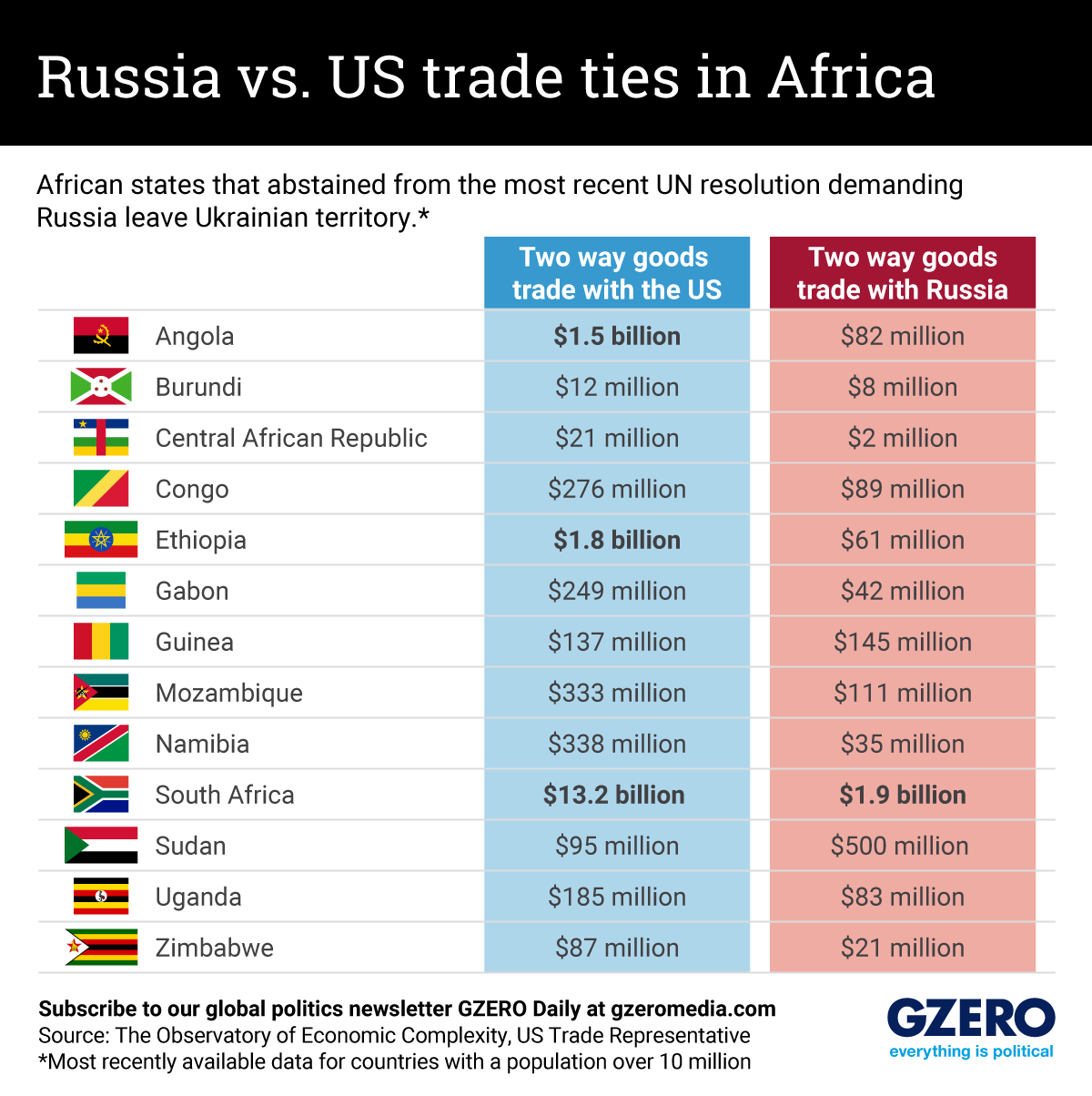The Graphic Truth: Russia vs. US trade ties in Africa
On the one-year anniversary of Russia’s war in Ukraine, the UN General Assembly last week held a vote calling on Russian troops to leave Ukrainian territory. Those who opposed the resolution included the usual suspects that have aligned themselves closely with the Kremlin like Syria and Belarus, as well as Eritrea and Mali, which have close links to the Russian military.
Perhaps more interesting, however, is a look at those countries that abstained in a bid to reinforce their neutrality. Crucially, most of last week’s abstentions came from African states, which can be seen as a reflection of Russia’s growing political and economic clout in the region. But a look at bilateral trade relations between these African nations with Russia and the US, separately, shows that in most cases, two-way trade in goods with the US is way more lucrative.
Indeed, this suggests that Russia’s political leverage across the continent is multifarious. It comes from Russia’s vast reserves of oil, wheat and fertilizer — as well as its position in the global weapons trade, accounting for around half of all arms exports to Africa. We take a look at two-way trade between African states that abstained from the recent UN vote with the US and Russia, respectively.